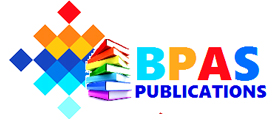The advent of smart new technologies, smart mobile connections and online services has a great impact on all aspects our life and activities. Also this advancement has many impacts on the world around us. Today, libraries and library services have great impact on the world. The aim of the current study is to introduce readers with new technologies applied to Internet of Things (IoT) that can help libraries to improve their services and increase users’ satisfaction. This study also tries to present about the possible areas of implementing the concept of IoT in academic libraries and user satisfaction on the IoT based library services and resources. Online survey from selected Educational Institutions was conducted and Data collected from a survey of a sample of 183 library users to analyse the importance and satisfaction of IoT based services and resources. Possible areas for implementing IoT in libraries - improve access to the library and its resources, collection management, recommendation service, location-based service, appliances management, usage statistics, and information literacy. The IoT technology will notify and fulfils the user-related queries through on internet i.e., self-check-in, self-check-out, overdue reminders, online fine payment, misplaced books on shelves, etc. The study observed that the maximum number of respondents used WhatsApp and Facebook respectively. Meantime, the libraries should concentrate more on interaction through videoconferencing like, Google Meet, Zoom etc. and library tutorial. 73% of the respondents are highly using the Swayam and the second highest is e-Pathshala with 48%. The institutes provide remote based library resources and services through cloud-based access on the basis of IoT i.e. Deep knowledge – remote access, Bookshelf - Mobile App and Ezproxy –Server. Most of the higher educational institutes prefer to subscribe the Deep knowledge portal on the basis of users’ satisfaction. In IoT based modern library services, it is understood that three parameters such as Academic Performance Support and Infrastructure are having significant association with the satisfaction level of 5% and training is having significant association with the satisfaction level of 1% respectively. IoT based library services and resources can be implemented in the all sections of libraries functions and services i.e. collection management, Library Marketing services, Information literacy programs, effective utilization of online learning portals, accessing of library resources, etc. ICT and Information literacy should be compulsorily included as part of the curriculum in order to equip the students and faculties for face the current digital IoT environment efficiently.
KEYWORDS: Internet of Things, IoT, Academic Library, Educational Institute, Indian Universities, Collection Management, Machine to Machine Communication


